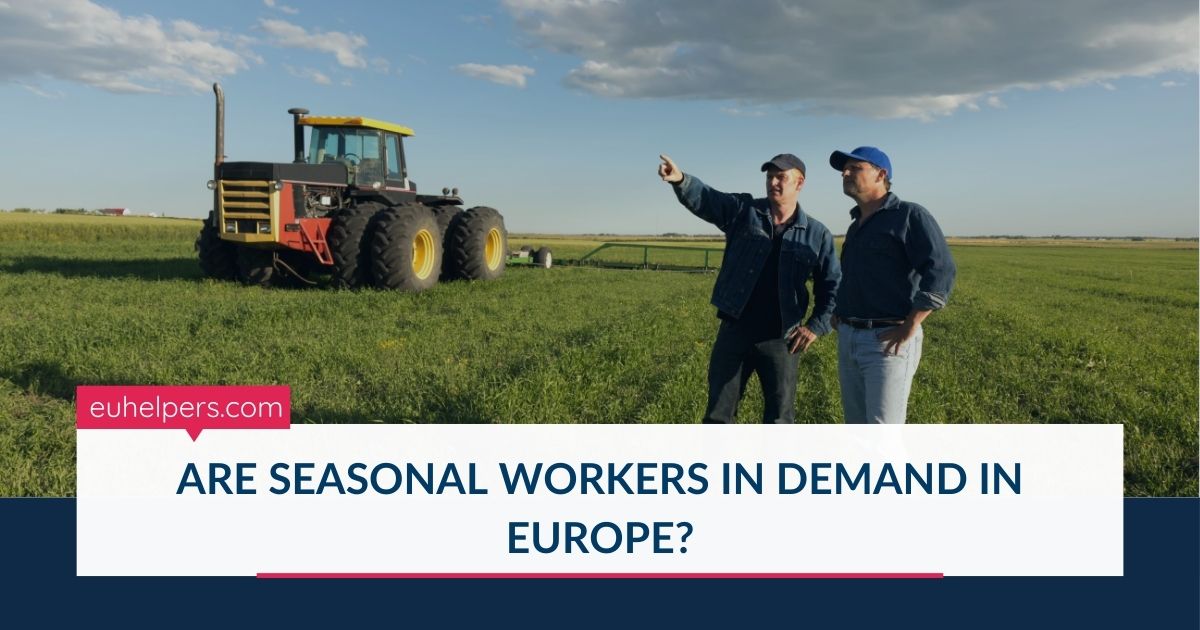Seasonal jobs in Europe are on the rise, especially in agriculture, tourism, and hospitality. Learn where the demand is highest, how to apply, and key visa requirements for temporary work in 2025.
Why Seasonal Work in Europe is in High Demand
Europe faces ongoing labor shortages in key sectors during peak seasons, creating strong demand for seasonal workers, particularly in agriculture, tourism, and hospitality. To fill these gaps, many countries rely on foreign workers and offer dedicated visa programs to make the process easier.
The EU Seasonal Workers Directive also plays an important role by setting guidelines to protect the rights of third-country nationals who take up temporary jobs in Europe.
Key Sectors Offering Seasonal Jobs in Europe
1. Agriculture and Horticulture
This sector consistently tops the list for seasonal employment. Jobs include fruit and vegetable picking, flower cultivation, packing, and farm maintenance, especially during planting and harvest periods. Non-EU nationals are often recruited to meet demand.
2. Tourism and Hospitality
Europe’s summer and winter tourist seasons create thousands of temporary jobs in hotels, resorts, restaurants, and bars. Popular destinations like Spain, France, and Italy seek extra staff during holidays and peak travel periods.
3. Entertainment and Recreation
Seasonal opportunities are available in ski resorts, summer camps, and amusement parks, offering roles in customer service, sports instruction, and entertainment.
4. Catering and Food Processing
Food production and catering businesses experience surges in demand during festive seasons, requiring temporary staff for preparation, packaging, and delivery.
How to Find Seasonal Jobs in Europe
-
Use the EURES Portal: The official European Job Mobility Portal lists seasonal job openings and connects applicants with EURES advisers for support.
-
Check National Visa Programs: Many countries, including Germany and Poland, have special programs to attract seasonal workers.
-
Partner with Recruitment Agencies: Specialized agencies can help match you with seasonal employers and assist with documentation.
-
Search for Country-Specific Opportunities: Countries like Poland and Germany simplify hiring procedures for non-EU seasonal workers, making them popular destinations.
Important Considerations for Seasonal Workers
-
Visa and Work Permits: Understand the visa requirements for your target country. Many seasonal roles require a short-term work permit or a Schengen visa for up to 90 days.
-
EU Seasonal Workers Directive: This directive ensures fair treatment and proper working conditions for non-EU seasonal employees.
-
Work Duration: Most seasonal contracts last between two weeks and three months, though some roles may extend for longer periods depending on sector needs.
Seasonal work in Europe is an excellent opportunity for those looking for short-term employment, cultural exchange, or a gateway into the European job market. With high demand in agriculture, tourism, hospitality, and food processing, workers can find diverse roles across the continent.
If you plan to apply, start early, research visa requirements, and use reliable job platforms like EURES to increase your chances of securing a position.

